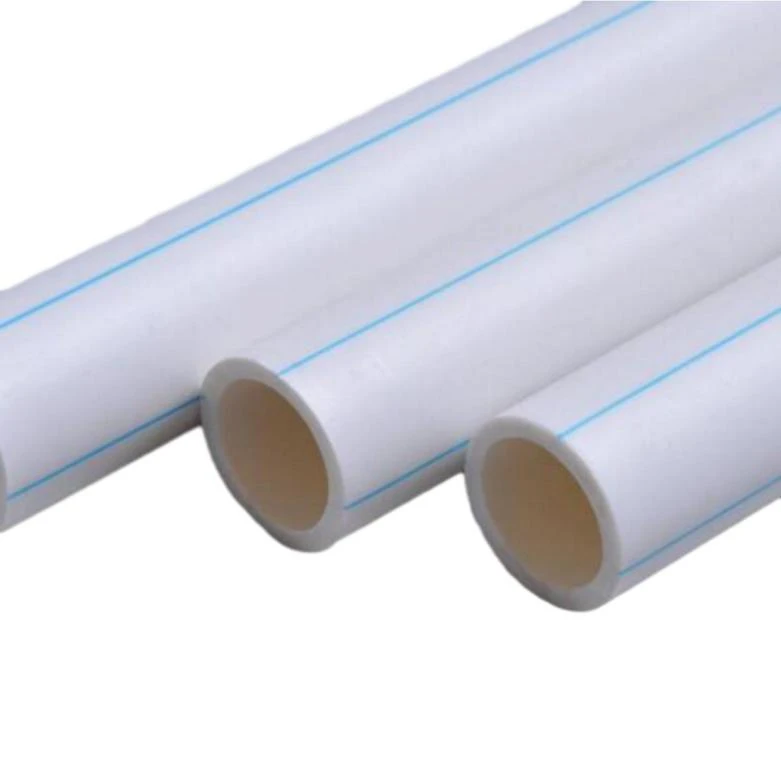Nov . 25, 2024 07:02 Back to list
Types and Sizes of PVC Pipe Manufacturers for Various Applications and Uses
Understanding PVC Pipe Types and Sizes A Guide for Manufacturers
In the realm of modern construction and plumbing, PVC (Polyvinyl Chloride) pipes stand out as one of the most versatile and widely used materials. With their durability, lightweight nature, and resistance to corrosion, PVC pipes offer myriad applications in residential, commercial, and industrial projects. For manufacturers and consumers alike, understanding the various types and sizes of PVC pipes is essential for selecting the right product for specific needs.
Types of PVC Pipes
PVC pipes come in several categories, each designed for specific functions and applications
1. Schedule 40 PVC Pipes One of the most common types used in plumbing, Schedule 40 pipes have a moderate wall thickness that provides good strength and durability. They are suitable for both pressure and non-pressure systems, making them ideal for residential plumbing, drainage, and irrigation.
2. Schedule 80 PVC Pipes These pipes are designed for higher pressure applications due to their thicker walls compared to Schedule 40 pipes. Schedule 80 PVC is often used in industrial applications where durability and resistance to impact and chemical exposure are critical.
3. PVC Conduit Specifically designed for electrical purposes, PVC conduit protects electrical wiring from damage. They are available in both rigid and flexible sizes, making them ideal for various installation environments.
4. PVC Drainage Pipes These are used primarily for wastewater and stormwater management. They are designed to facilitate gravity-flow drainage systems, featuring smooth inner surfaces that reduce friction and allow for efficient water flow.
5. PVC Pressure Pipes Designed to withstand high pressure, these pipes are commonly used in water supply systems. They're often specified for applications that require a reliable and long-lasting solution under varying pressure conditions.
6. Expanded PVC Sheets While not a pipe, expanded PVC sheets are worth mentioning due to their popularity in multiple applications. These sheets are lightweight, durable, and resistant to chemicals, making them popular in signage, displays, and various construction projects.
Sizes of PVC Pipes
PVC pipes are available in a wide range of sizes to accommodate different applications and flow rates. The most common diameters for PVC pipes range from ½ inch to 24 inches, with the following sizes being particularly prevalent
pvc pipe types and sizes manufacturer

- 1/2 inch to 2 inch These sizes are frequently used in residential plumbing and irrigation systems. They are suitable for water supply lines, sprinkler systems, and drain lines.
- 2 ½ inch to 6 inch This range is popular for commercial plumbing and irrigation applications. They are used for medium to large-scale drainage systems, as well as larger water supply lines.
- 8 inch to 12 inch These sizes are typically found in municipal waste systems and larger drainage applications. They endure higher volumes of water flow, making them suitable for both commercial and industrial environments.
- Above 12 inches Larger PVC pipes are often used in industrial applications, such as in laboratories or factories, where large quantities of water or chemicals flow through a system.
Factors to Consider When Choosing PVC Pipes
When selecting PVC pipes, manufacturers and consumers should consider several factors
- Application Understand the specific requirements of the project, including pressure conditions and whether the pipe will be exposed to chemicals.
- Size and Diameter Calculate the required size based on the flow rate and the piping system's design.
- Standards and Certification Ensure that the PVC pipes meet relevant standards (such as ASTM or ANSI) for safety and quality assurance.
- Installation Requirements Familiarize yourself with the installation techniques unique to different types of PVC pipes to ensure durability and longevity.
In conclusion, PVC pipes have become an indispensable component of modern infrastructure due to their variety and adaptability. By understanding the different types and sizes of PVC pipes, manufacturers can make informed decisions that enhance construction projects while ensuring efficient and reliable service. Whether dealing with plumbing, electrical, or drainage systems, knowledge of PVC pipes can lead to improved performance and satisfaction in end-user applications.
-
High-Quality PVC Borehole Pipes Durable & Versatile Pipe Solutions
NewsJul.08,2025
-
High-Quality PVC Perforated Pipes for Efficient Drainage Leading Manufacturers & Factories
NewsJul.08,2025
-
High-Quality PVC Borehole Pipes Durable Pipe Solutions by Leading Manufacturer
NewsJul.08,2025
-
High-Quality PVC Borehole Pipes Reliable PVC Pipe Manufacturer Solutions
NewsJul.07,2025
-
High-Quality UPVC Drain Pipes Durable HDPE & Drain Pipe Solutions
NewsJul.07,2025
-
High-Quality Conduit Pipes & HDPE Conduit Fittings Manufacturer Reliable Factory Supply
NewsJul.06,2025

